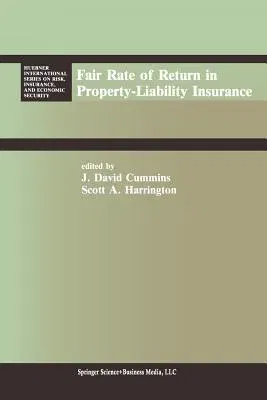Fair Rate of Return in Property-Liability Insurance (Softcover Reprint of the Original 1st 1987)Paperback - Softcover Reprint of the Original 1st 1987, 21 April 2014

Qty
1
Turbo
Ships in 2 - 3 days
In Stock
Free Delivery
Cash on Delivery
15 Days
Free Returns
Secure Checkout
Part of Series
Huebner International Risk, Insurance and Economic Security
Part of Series
Huebner International Series on Risk, Insurance and Economic
Print Length
150 pages
Language
English
Publisher
Springer
Date Published
21 Apr 2014
ISBN-10
9401577552
ISBN-13
9789401577557
Description
Product Details
Book Edition:
Softcover Reprint of the Original 1st 1987
Book Format:
Paperback
Country of Origin:
NL
Date Published:
21 April 2014
Dimensions:
22.86 x
15.24 x
0.94 cm
ISBN-10:
9401577552
ISBN-13:
9789401577557
Language:
English
Location:
Dordrecht
Pages:
150
Publisher:
Series:
Weight:
235.87 gm

